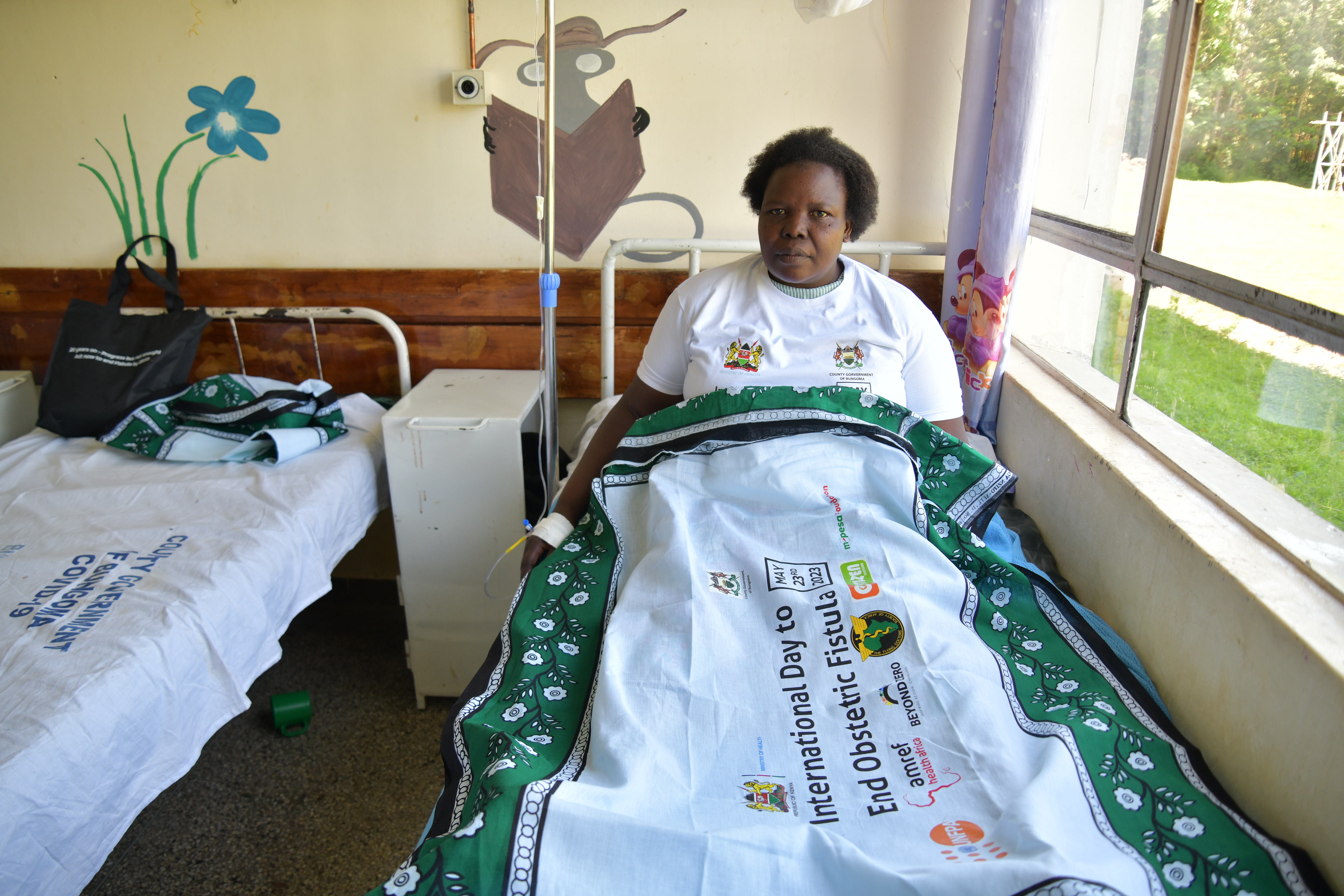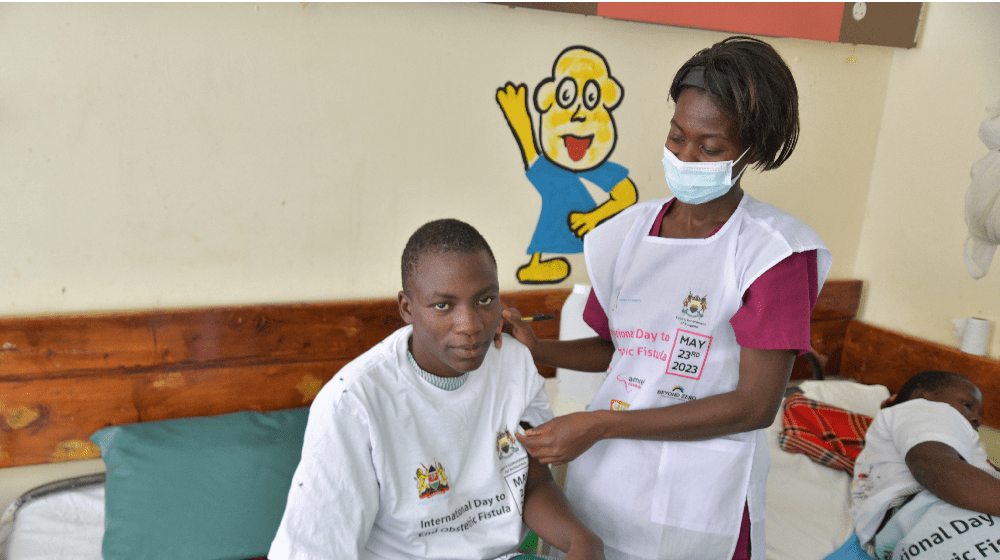35 -year-old Damaris Nekesa’s troubles began with the difficult birth of her first child which took place at home with the support of a traditional birth attendant.
“I was 21 years old, unemployed, and unmarried. I felt that I had brought shame to my family and so could not ask them for money to go to the hospital,” says Nekesa. Her labour lasted for four days, and each day the birth attendant would visit and reassure her that there was nothing to worry about. “I was in a lot of pain and bled profusely. It is a miracle that my child and I both survived the horrible experience,” she says.
Nekesa developed obstetric fistula, a condition caused by prolonged, obstructed labour without access to timely medical treatment. It is estimated that for every 1,000 deliveries in Kenya, three or four will result in fistula cases. The condition leaves women and girls leaking urine, feces or both, and often leads to chronic medical problems and social isolation.
Medical camp brings hope
After more than a decade of living with incontinence, Nekesa has traveled more than 100 kilometers to the Webuye County Hospital where she is scheduled to undergo surgery that will change her life for the better.
She is among women and girls attending a two-week fistula camp offering free screening and treatment for survivors of Fistula. The medical camp is organized by UNFPA in partnership with the Ministry of Health, County Government of Bungoma, Mpesa Foundation, Amref Health Africa, and the Flying Doctors Society, in observance of the International Day to End Obstetric Fistula which is marked annually on the 23rd of May.

surgery at the Fistula Camp held in Bungoma County, Kenya
The camp offered a comprehensive range of services to address the specific needs of fistula survivors. Led by skilled surgeons, the camp provided free screening and treatment to 479 women, with 49 receiving life-changing reconstructive surgery. The initiative also aimed to raise awareness about fistula and eliminate the stigma surrounding the condition.
Governor of Bungoma County, Hon. Kenneth Lusaka led celebrations to mark the International Day to End Obstetric Fistula, calling for greater efforts to safeguard maternal health and end harmful practices against women and girls. “The continued occurrence of fistula is a human rights tragedy that affects the most marginalized in our society,’ said Gov. Lusaka. “As a county, we are committed to eliminating harmful practices such as child marriage and gender-based violence which contribute to cases of fistula,” he added.
A reimagined future for survivors
The transformational impact of the medical camp was evident in the powerful stories of the survivors who now feel that their future has been transformed. “I have been living with a lot of shame because of this condition, and could not work, travel or socialize for fear of rejection by the community,” says 40-year-old survivor Jackline Khaemba. “With the free surgery, I feel like I have been given a second chance at life and can now get back to work without the constant worry and shame,” she says.
“UNFPA is committed to supporting survivors of fistula and to addressing the root causes of the condition by promoting access to quality maternal healthcare for all,” said UNFPA Kenya Reproductive Health Advisor Dr. Dan Okoro.


